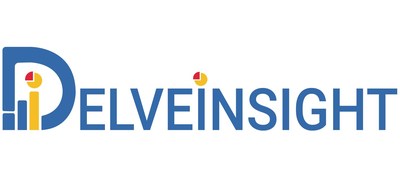Mantle Cell Lymphoma Clinical Trial Pipeline Insights Featuring 20+ Companies | DelveInsight
Comunicato Precedente

Comunicato Successivo

Key Takeaways from the Mantle Cell Lymphoma Pipeline Report
Request a sample and discover the recent advances in mantle cell lymphoma treatment drugs @ Mantle Cell Lymphoma Pipeline Report
The mantle cell lymphoma pipeline report provides detailed profiles of pipeline assets, a comparative analysis of clinical and non-clinical stage mantle cell lymphoma drugs, inactive and dormant assets, a comprehensive assessment of driving and restraining factors, and an assessment of opportunities and risks in the mantle cell lymphoma clinical trial landscape.
Mantle Cell Lymphoma Overview
Mantle cell lymphoma (MCL) is a rare subtype of B-cell non-Hodgkin lymphomas (NHLs) characterized by the (11,14) translocation, leading to overexpression of the cyclin D1 (CCND1) gene. Its various morphological variants can make diagnosis challenging, though some cases are straightforward. Many individuals with MCL are asymptomatic in the early stages, but may later seek medical attention due to persistent, typically painless swelling of lymph nodes, especially in the neck and throat region (e.g., Waldeyer's ring).
MCL is marked by a reciprocal chromosomal translocation t(11;14)(q13;q32), which places the cyclin D1 gene next to the immunoglobulin heavy chain gene, causing continuous cyclin D1 expression. This overexpression contributes to tumor cell proliferation through cell cycle dysregulation, chromosomal instability, and epigenetic changes. Rarely, MCL cases without this translocation may involve CCND2 or CCND3 translocations. Hypothetical molecular subtypes, based on the cell of origin, correlate with clinical phenotypes: classical or aggressive MCL arises from naive B cells lacking or having limited iGVH mutations and expressing SOX11, a neural transcription factor inhibiting terminal B cell differentiation. The indolent variant originates from antigen-experienced B cells with IGVH somatic hypermutations, typically SOX11-negative and genetically stable. Diagnosis of MCL involves detailed patient history, thorough clinical evaluation, and specialized tests, including biopsy of an affected lymph node or bone marrow. These tests confirm the NHL type and subtype, assess disease extent, and determine appropriate treatments.
Treatment for MCL is multifaceted and tailored to each patient, often including chemotherapy, immunotherapy drugs like rituximab, targeted therapies such as ibrutinib, and stem cell transplants, particularly for aggressive disease or younger patients. Radiation therapy may target specific lymphoma areas. Participation in clinical trials can offer new treatment options. Treatment plans are developed collaboratively by healthcare professionals and patients, considering disease stage, overall health, and personal preferences. Regular monitoring and follow-up care are essential to track treatment response and manage side effects effectively.
Find out more about mantle cell lymphoma treatment drugs @ Drugs for Mantle Cell Lymphoma Treatment
A snapshot of the Mantle Cell Lymphoma Pipeline Drugs mentioned in the report:
Learn more about the emerging mantle cell lymphoma pipeline therapies @ Mantle Cell Lymphoma Clinical Trials
Mantle Cell Lymphoma Therapeutics Assessment
The mantle cell lymphoma pipeline report proffers an integral view of the mantle cell lymphoma emerging novel therapies segmented by stage, product type, molecule type, mechanism of action, and route of administration.
Scope of the Mantle Cell Lymphoma Pipeline Report
Dive deep into rich insights for new drugs for mantle cell lymphoma treatment, visit @ Mantle Cell Lymphoma Drugs
Table of Contents

For further information on the mantle cell lymphoma pipeline therapeutics, reach out @ Mantle Cell Lymphoma Treatment Drugs
Related Reports
B-Cell Lymphoma Epidemiology Forecast – 2032 report delivers an in-depth understanding of the disease, historical and forecasted epidemiology as well as the B-cell lymphoma epidemiology trends.
B-Cell Lymphoma Market Insights, Epidemiology, and Market Forecast – 2032 report deliver an in-depth understanding of the disease, historical and forecasted epidemiology, as well as the market trends, market drivers, market barriers, and key B-cell lymphoma companies, including Vincerx Pharma, Ubix Therapeutics, Biomea Fusion Inc, Shanghai Hengrui Pharmaceutical, BeiGene, Hanmi Pharmaceutical, among others.
Diffuse Large B-Cell Lymphoma Pipeline
Diffuse Large B-Cell Lymphoma Pipeline Insight – 2024 report provides comprehensive insights about the pipeline landscape, pipeline drug profiles, including clinical and non-clinical stage products, and the key DLBCL companies, including Genmab, Roche, Acerta Pharma, Autolus, Xynomic Pharmaceuticals, Genentech, Celgene, AbbVie, Mabion, among others.
Diffuse Large B-Cell Lymphoma Market
Diffuse Large B-Cell Lymphoma Market Insights, Epidemiology, and Market Forecast – 2034 report deliver an in-depth understanding of the disease, historical and forecasted epidemiology, as well as the market trends, market drivers, market barriers, and key B-cell lymphoma companies, including AbbVie, Genmab, Merck, Roche, Xencor and Janssen, Denovo Biopharma, Calithera Biosciences, IMV, Biogen, Autolus Therapeutics, Allogene Therapeutics, Novartis, Miltenyi Biomedicine, Regeneron Pharmaceuticals, among others.
About DelveInsight
DelveInsight is a leading Business Consultant and Market Research firm focused exclusively on life sciences. It supports pharma companies by providing comprehensive end-to-end solutions to improve their performance. Get hassle-free access to all the healthcare and pharma market research reports through our subscription-based platform PharmDelve.
Contact Us
Shruti Thakur
[email protected]
+14699457679
www.delveinsight.com
![]() View original content:https://www.prnewswire.co.uk/news-releases/mantle-cell-lymphoma-clinical-trial-pipeline-insights-featuring-20-companies--delveinsight-302252721.html
View original content:https://www.prnewswire.co.uk/news-releases/mantle-cell-lymphoma-clinical-trial-pipeline-insights-featuring-20-companies--delveinsight-302252721.html





